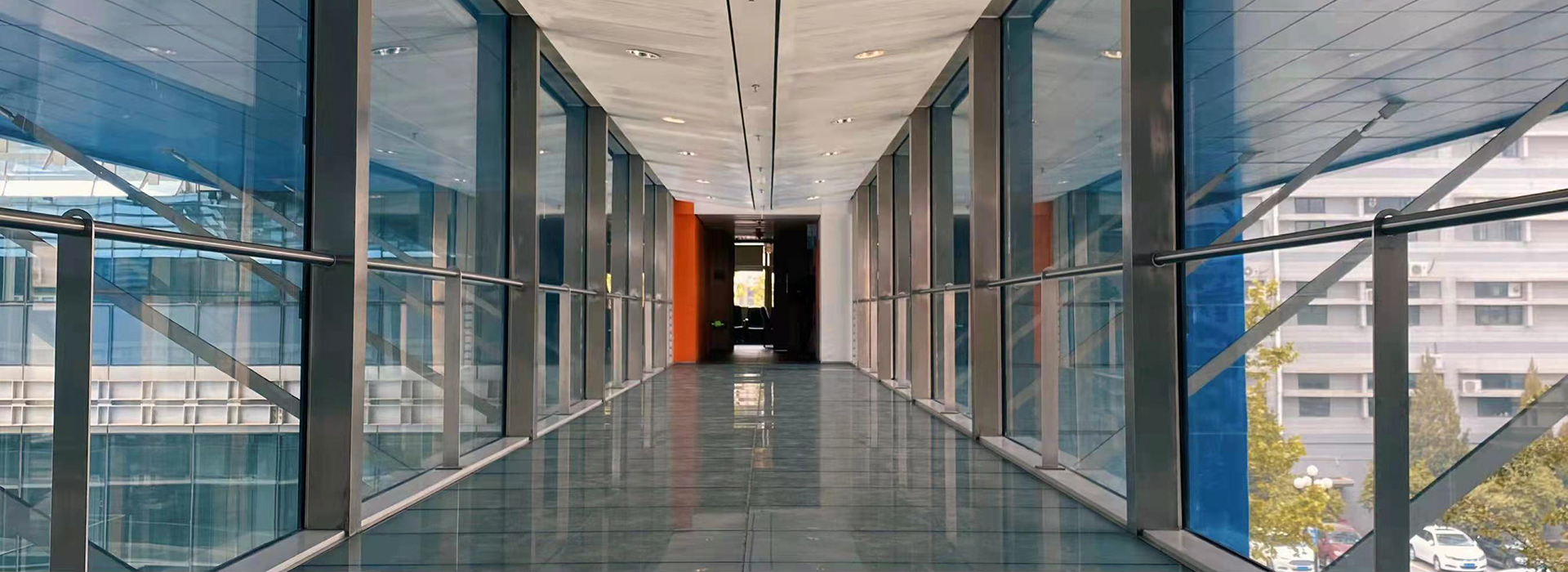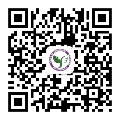On June 4, the project "Safe Supply System and Key Technologies for Reclaimed Water, "a key science and technology cooperation project between China and Japan, led by Tsinghua University, successfully passed the acceptance organized by China Science and Technology Exchange Center (CSTEC).
The project is jointly supported by the National Key R&D Program of the Ministry of Science and Technology (MOST) and the Water Project of the National Institute of Advanced Industrial Science and Technology (AIST) and jointly undertaken by Chinese units such as Tsinghua University, Research Center for Eco-Environmental Sciences of CAS, Tianjin University,Tianjin Reclaimed Water Co., Ltd, and Vontron Membrane Technology Co., LTD., and Japanese units such as AIST, Kyoto University, and Kurita Water Industries Ltd.
The project aims at ensuring a safe reclaimed water supply. The multi-dimensional safety evaluation and water quality early warning technology of reclaimed water to control pathogenic microorganisms, toxic and harmful chemical pollutants, and inorganic salts has been developed through Sino-Japanese joint R&D.
New principles, materials, technologies, and processes of reclaimed water treatment to control the characteristic risk factors such as microorganisms and toxic and harmful pollutants have been developed. Key technologies of multivariate control of reclaimed water characteristic risk factors have been created. Anti-fouling reverse osmosis (RO) membranes modules for reclaimed water desalting have been developed, which realized the localization of key products and equipment with high-efficiency reclaimed water RO treatment systems and technologies. The safe transportation and distribution technology of reclaimed water for leakage early warning and control has been developed. Water quality monitoring and early warning technology for user risk control have been created. A "whole-process, multi-barrier" technology system for safe reclaimed water supply has been formed through technology integration, and the application of key technologies has been demonstrated. Through the implementation of the project, an industry-university-research-user joint R&D team with complementary advantages in the field of reclaimed water has been formed, which has provided strong support for improving urban water supply capacity and ensuring water supply safety.
Guan Haibo from the CSTEC hosted the acceptance meeting. Liu Hua, Director of the Planning Division of the Cooperation Department of MOST, and Jiang Xiaoping, a first-level researcher of the Asian-African Division, introduced respectively the basic information on international cooperation projects of MOST and Sino-Japanese cooperation projects between governments. The project leader, Professor Hu Hongying from Tsinghua University, reported the completion and main achievements of the project. The expert group seriously questioned and commented on the project.
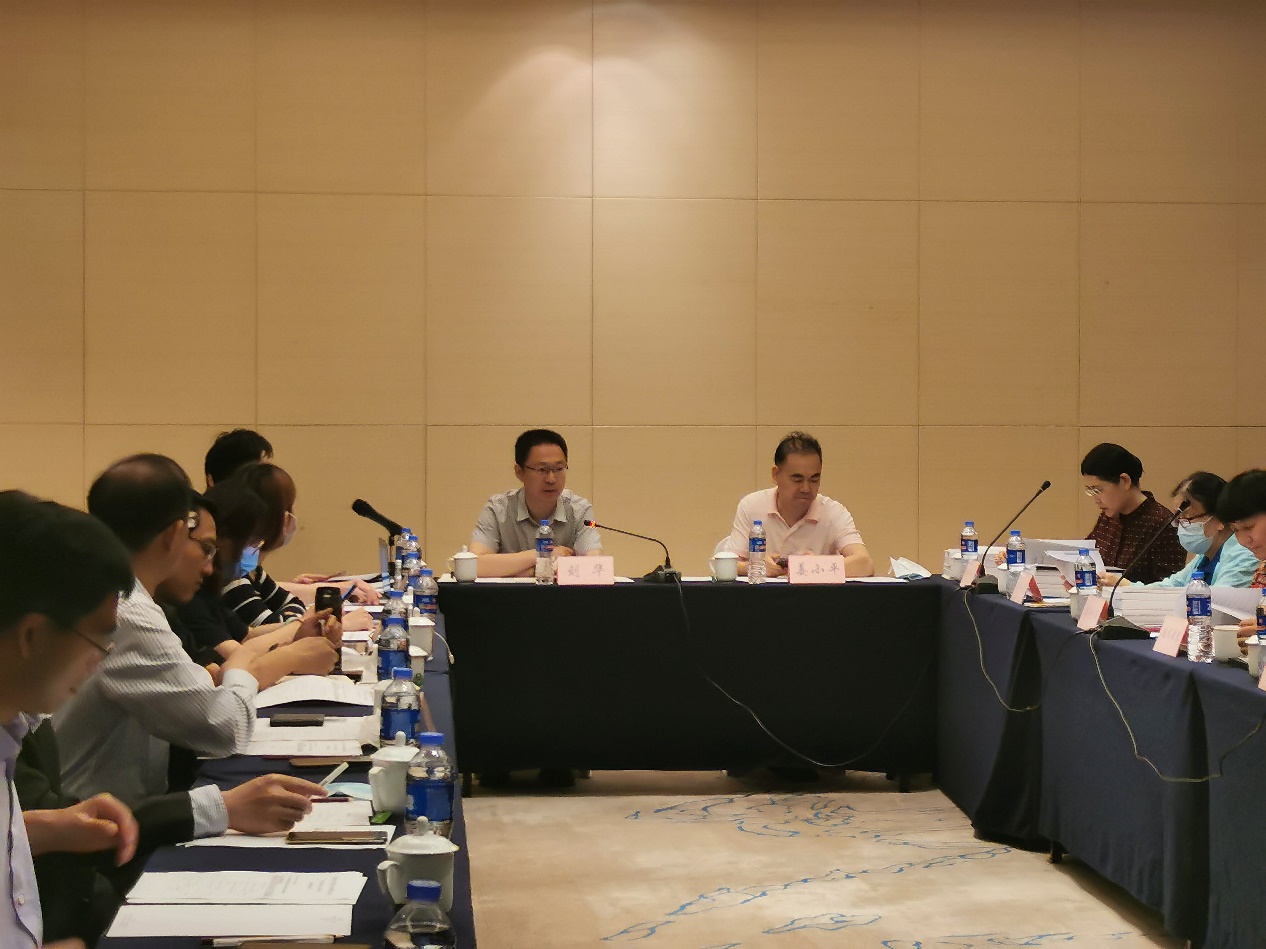
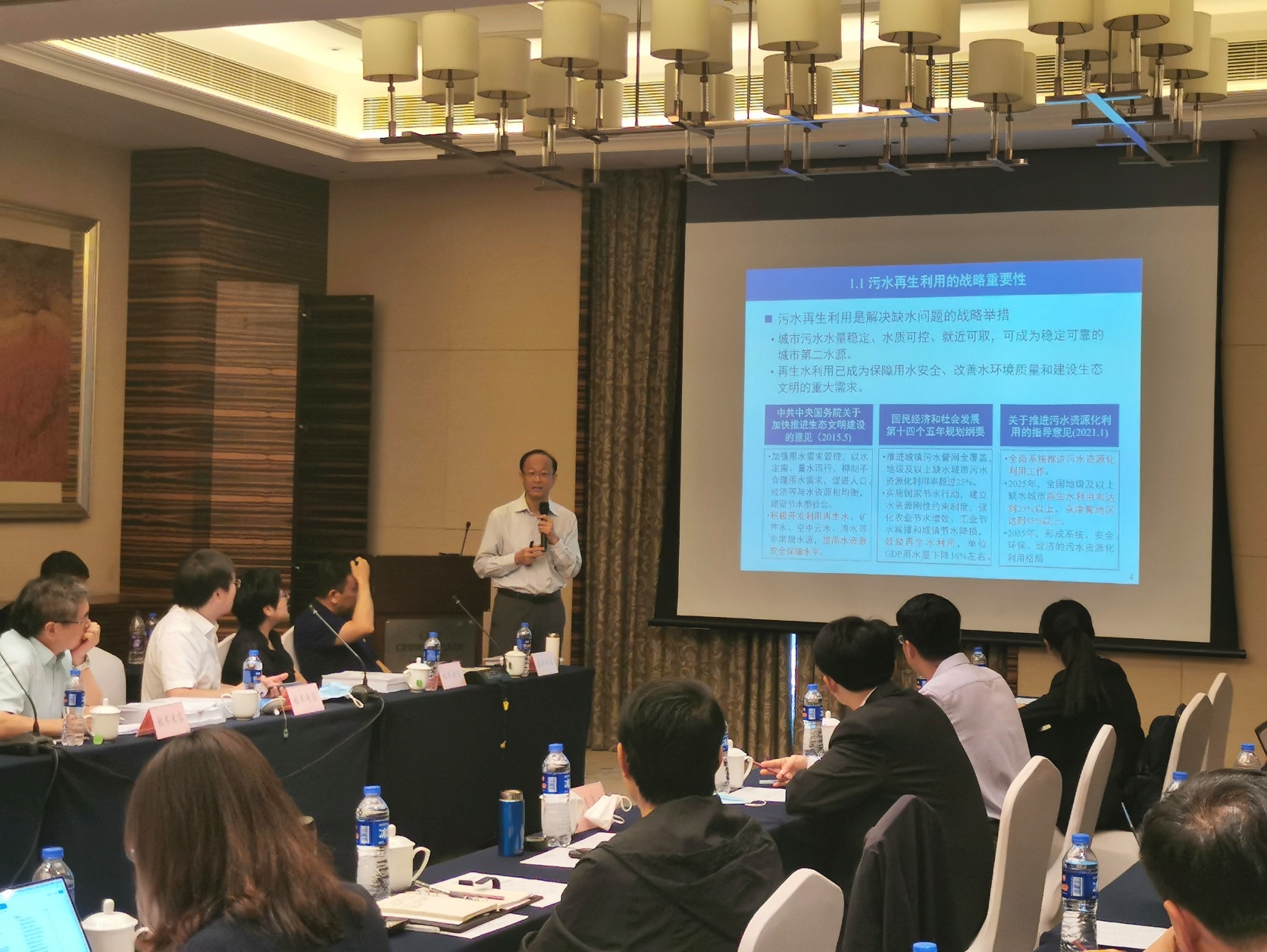
The acceptance meeting (Photo by Xu Chuang and Wu Yunpeng)
The expert group conducted on-site verification of the multi-barrier reclaimed water safety demonstration system. The demonstration system of reclaimed water production with a treatment scale of 160 m3/d has been built based on the Tianjin Jingu Reclaimed Water Plant. With the ultrafiltration-RO/nanofiltration process as the core, the system can compare different RO pretreatment processes, RO membrane modules, and RO agents and their application modes. In addition, it can test the treatment effect of the ozonation-biological treatment process on actual RO concentrated water. The reclaimed water pipe network transmission and distribution simulation system can simulate misconnection and leakage and monitor changes in hydraulic and water quality under different working conditions.
The expert group spoke highly of the project results. The project broke through several key technologies for safe reclaimed water supply, created a secure reclaimed water supply system, and provided technical, systematic, and standard support for sewage recycling and utilization.
In January 2021, in accordance with the deployment of the State Council, the National Development and Reform Commission (NDRC), together with other 9 departments, issued the "Guidelines on Promoting Sewage Recycling" (hereinafter referred to as the "Guidelines"), clearly putting forward "incorporating recycled water into the urban water supply system", which marks that the utilization of recycled water has become a key task of the country in the field of resources and environment. The project results will provide strong support for the implementation of the Guidelines.
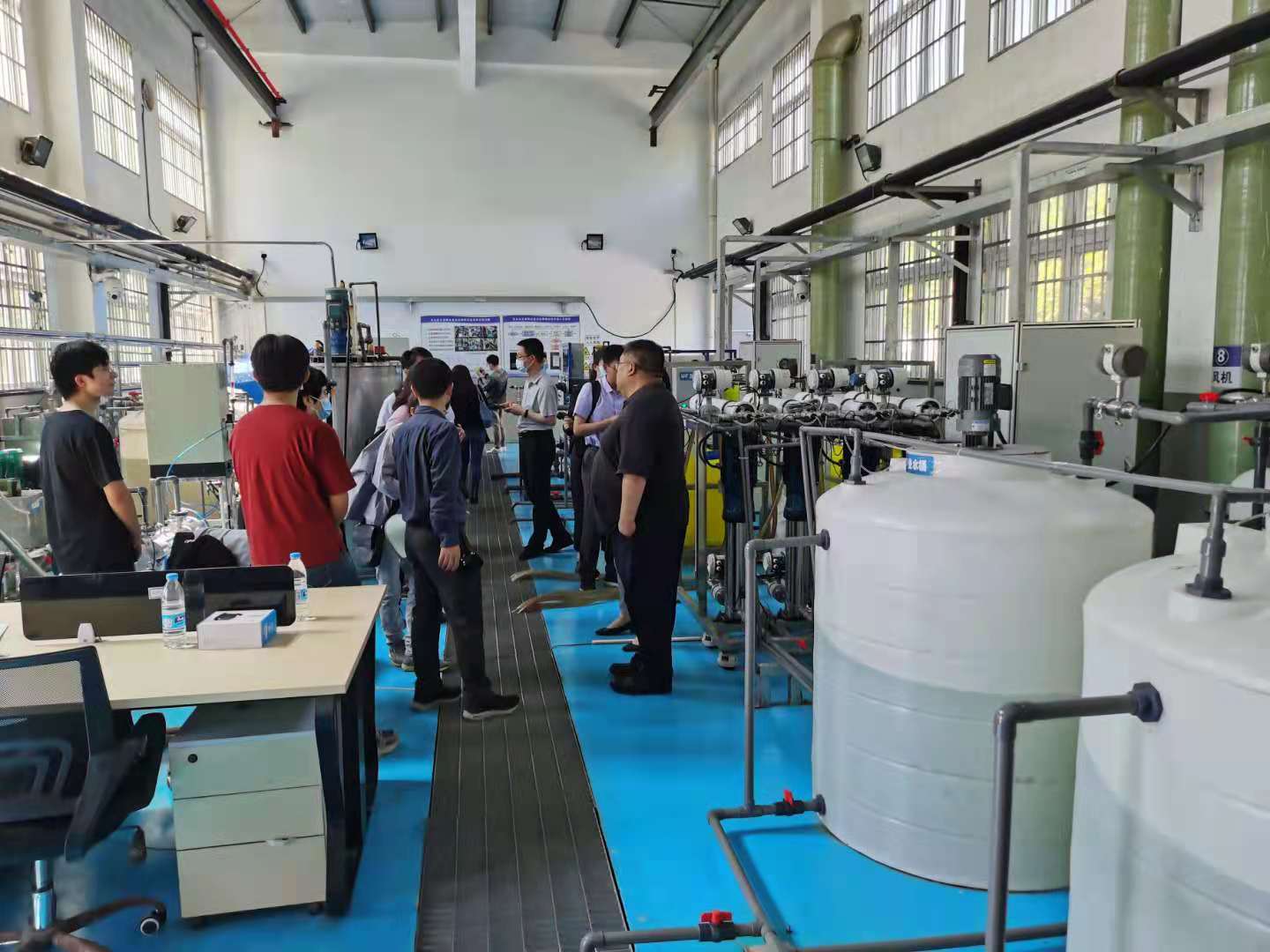
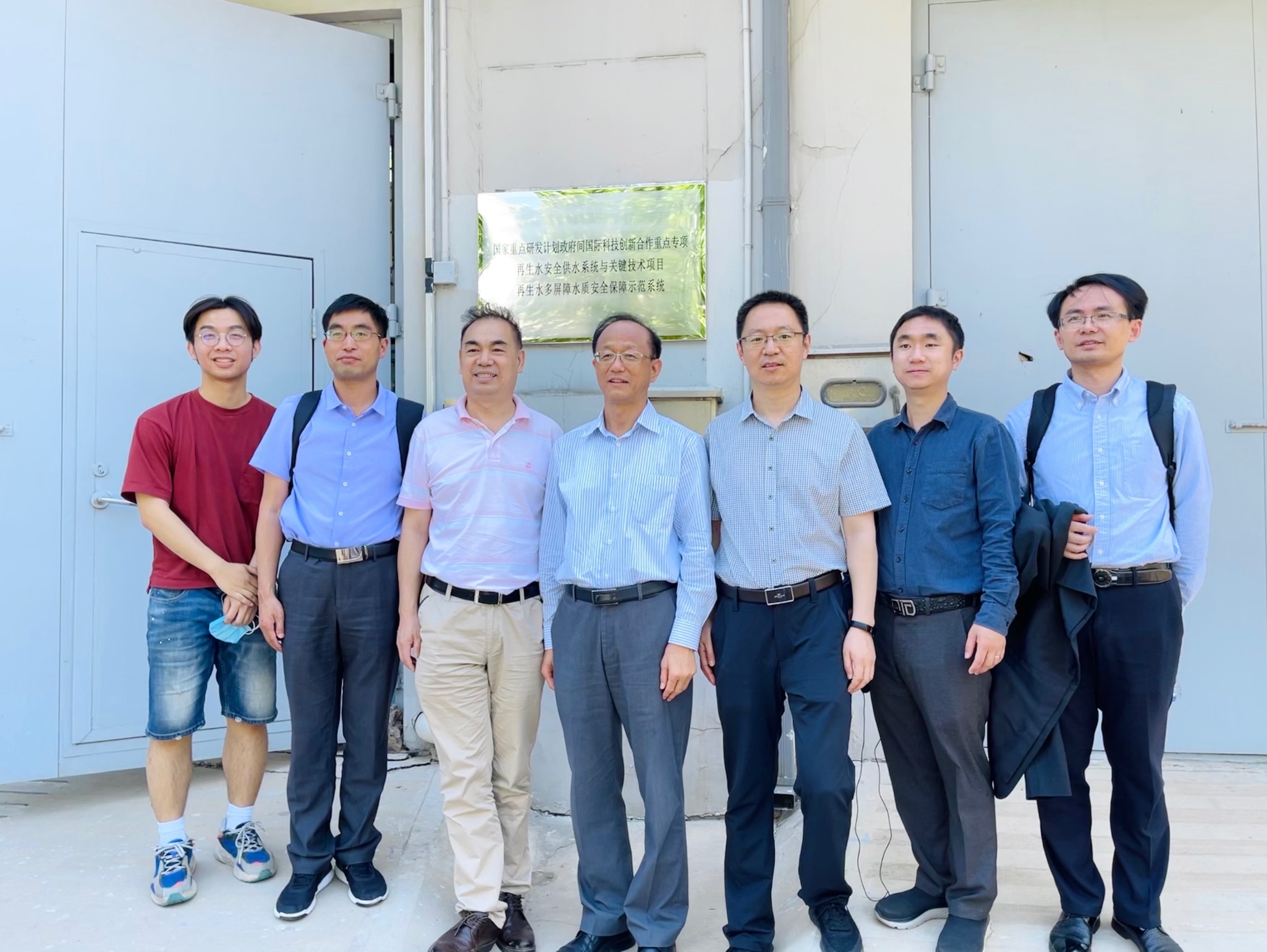
Experts and leaders of the International Department of MOST inspected the multi-barrier reclaimed water safety demonstration system (Photo by Xu Chuang and Wu Yunpeng)



